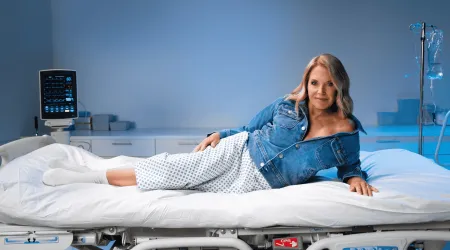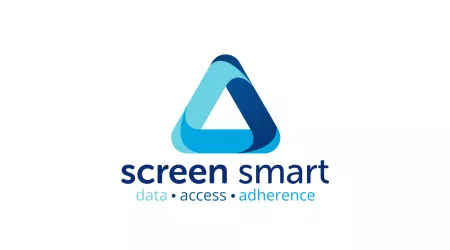What to expect during a colonoscopy
The day of your colonoscopy is usually not a difficult one. In fact, most people report that it is the easiest part of the process.

For you and your loved ones
Having a colonoscopy may seem like a big deal -- and it is! But that's because it can catch cancer early, not because the procedure is difficult. Be sure to follow your doctor's orders for your prep and arrive on time. Do it for you and your loved ones.
The day of your colonoscopy
Here are some steps you will typically go through on the day of your colonoscopy.
Arrival for your appointment
You will have your procedure at an endoscopy center, hospital, or other facility. It's very important that someone comes with you who can drive you home afterwards.
Pre-procedure
Before the procedure you will:
- Change into a hospital gown
- Have an IV line inserted
- Meet your anesthesia provider
Sedation
Your anesthesia provider will give you medicine through your IV to sedate you before the procedure begins.
Colonoscopy begins
Once you are asleep, a thin, flexible tube equipped with a tiny video camera is inserted into your anus to look inside your colon and rectum. The exam takes about 20 to 30 minutes.
Waking up
After your colonoscopy, you will wake up in a recovery room. Other than being a little groggy, you should feel fine.
Head home
When you are ready to be discharged, you will dress and go home. If any biopsies were taken, your doctor will let you know the results in about a week.
Give yourself a hand!
You will need to rest when you get home, so while you are taking it easy:
- Drink plenty of fluids
- Begin eating slowly
- Pat yourself on the back for getting your screening!
Before and after a colonoscopy
Brooks Bell, Colorectal Cancer Alliance Board Member, visits an endoscopy suite for a follow-up colonoscopy and records everything! She even shares a dream she had during the procedure.

More about the prep
Prep tipsTop resources

National Cancer Prevention Month: Majority View Encouraging Screening as an Act of Love
Americans increasingly view colorectal cancer screening encouragement as an act of love, with new survey data showing rising openness about lifesaving prevention.

Katie Couric Joins the Colorectal Cancer Alliance To ‘LEAD FROM BEHIND’
Katie Couric joins the Colorectal Cancer Alliance and Ryan Reynolds’ Maximum Effort to expand LEAD FROM BEHIND, a star-powered campaign breaking stigma and urging lifesaving colon cancer screening. Colon cancer is the preventable cancer.

20+ Colorectal Cancer Alliance Screen Smart Partners Encourage Secretary Kennedy to Uphold USPSTF Goal to Improve Health
The Colorectal Cancer Alliance and more than 20 Screen Smart partners urge HHS Secretary Robert F. Kennedy Jr. to protect USPSTF’s evidence-based process and no-cost preventive screenings like colorectal cancer screening, which save lives and improve national health.





